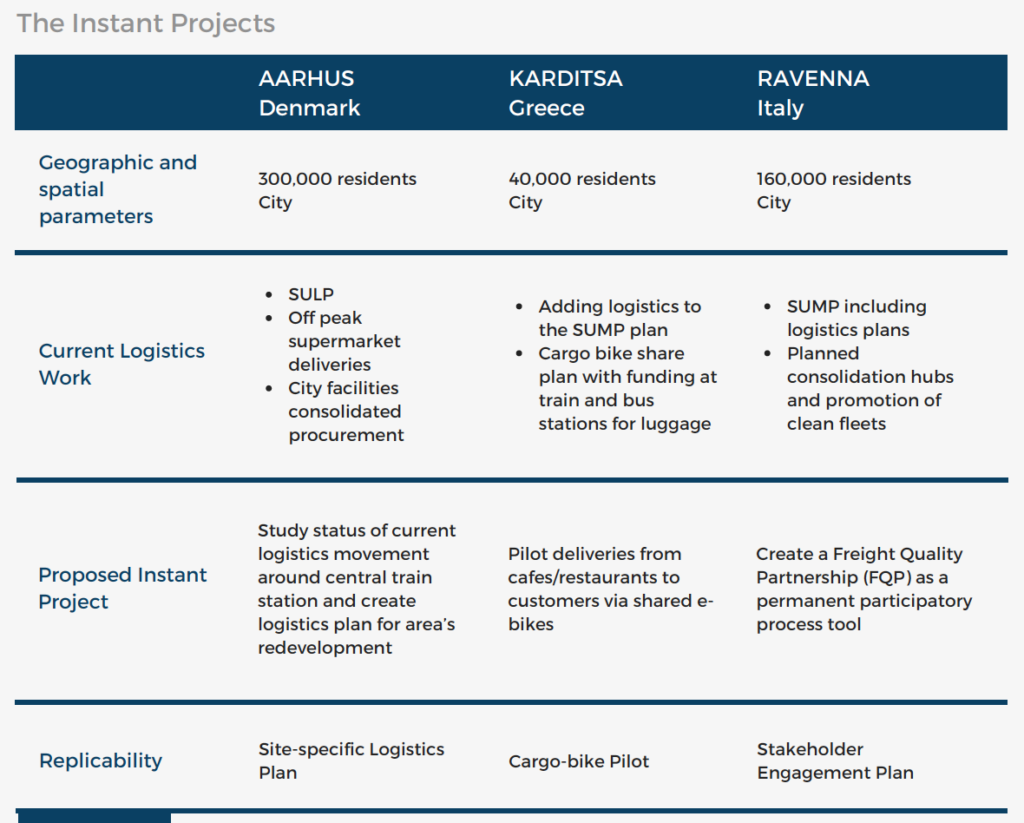After months of exploring the topics of Sustainable URban Freight and Zero-Emission Zones for freight – also known as ZEZ-F, the SURF project – a joint effort of Environmental Defense Fund Europe and POLIS Network officially ended. The SURF Final Report is a testament to this exciting and rich adventure.
Building upon the How-to Guide on Zero-Emission Zones for Freight, the project has provided cities with knowledge and tools to replicate best practices and develop their own ways to face their specific needs.
In particular, the project gathered critical lessons from the projects of Karditsa, Ravenna, and Aarhus, such as:
- Results from pilot projects and studies should be included in larger, long-term city freight and mobility plans;
- Pilots with low complexity can still have high impact and visibility;
- It is essential to focus on an area where a project can be most effective and manageable.

SURF showed that effective, innovative solutions could be achieved even with a small budget; all you need is diverse stakeholders and expertise aligning and working together.
The overall lessons learned from this project highlighted the importance of understanding and identifying the key problems, engaging with stakeholders early in a project, and utilizing the momentum from a pilot to continue freight work through scalability and replicability.
The findings of this project have demonstrated the importance of freight in the implementation of Zero Emission Zones by 2030 and why it cannot be an afterthought but rather the starting point. Furthermore, the SURF project enabled cities to learn and pilot the critical steps for introducing or furthering existing sustainable logistics goals.
The e-course developed for the project provides a convenient way for private and public sector practitioners, relevant stakeholders, researchers, and others to learn more about the importance of freight, why it should be included and prioritized in transport planning, and how to meet goals of implementing ZEZ-Fs by 2030 beyond the examples shown in the instant projects.
Source: POLIS report
